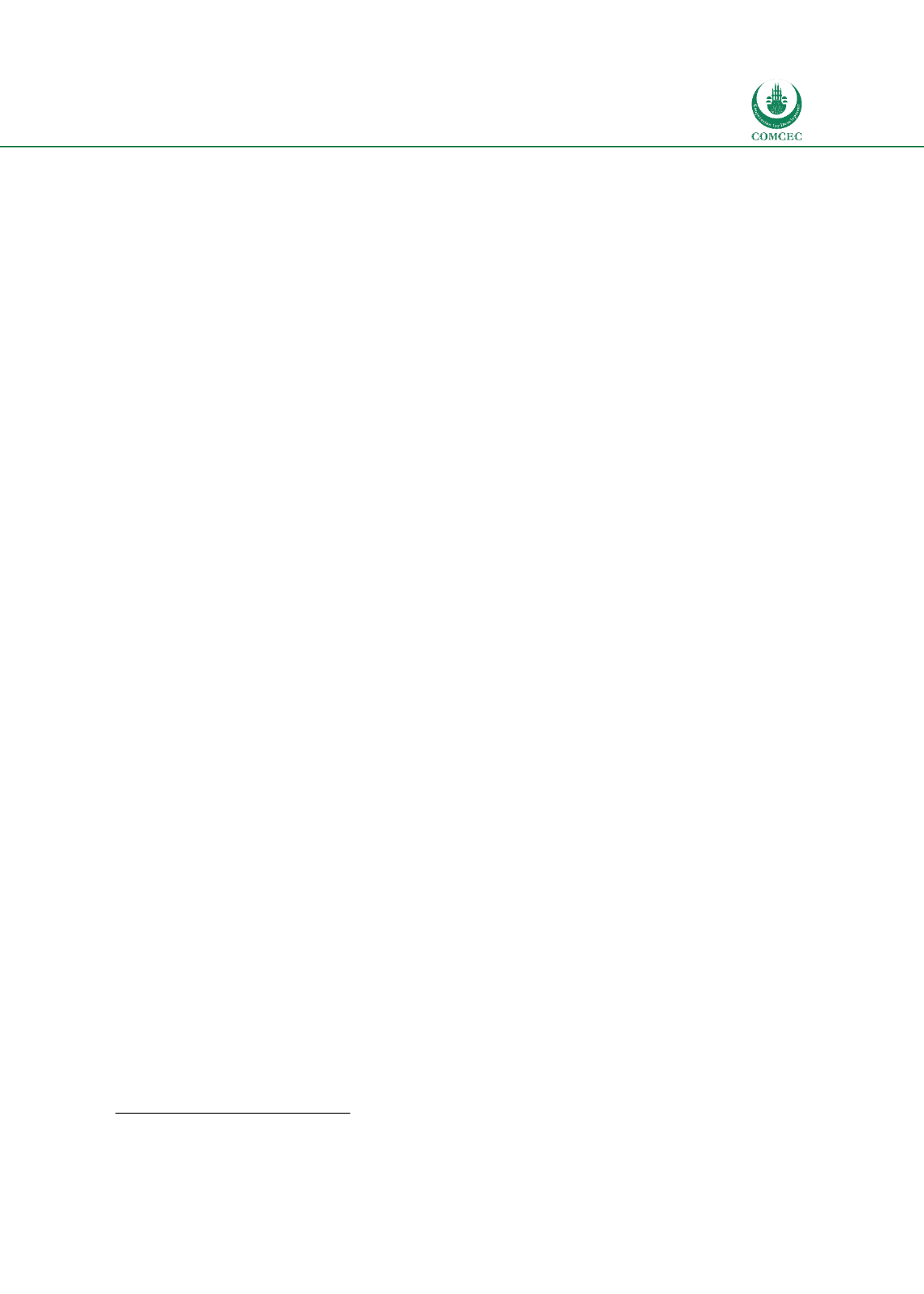

National and Global Islamic Financial Architecture:
Prolems and Possible Solutions for the OIC Member Countries
63
framework and initiated financial education programs. This is being done by adopting an
action plan to 'develop comprehensive consumer protection framework through improvising
existing guidelines on customer service and complaint management'.
BB has set up a dedicated department for attending consumer complaints within its own
structure and issued a comprehensive 'Guidelines for Customer Services & Complaint
Management in banks (BB 2014). These Guidelines are formulated with specific objectives like
attaining and retaining customer satisfaction and interest protection and bank/financial
institution goodwill, reputation and financial stability. The Guidelines are structured and focus
on the aspects of institutional and individual ethical standards, customer service quality,
customer awareness programs, and complaint management systems. The document serves the
purpose of providing guidelines to all bank companies and financial institutions on customer
services and complaint management systems that are expected to be in place. It sets out
minimum standards that shall be expected to be achieved by complaint cells of any banking
company /financial institutions.
For educating the consumers, BB has arranged an array of Cross Country Road Shows, SME
Fairs, MSME credit programs and capacity building programs, Open Agri-Credit Disbursement
Programs School Banking conferences in collaboration with banks. It has designed a Financial
Education web portal.
24
Islamic Finance literacy programs are conducted by the individual banks. Islamic banks
frequently arrange client awareness programs and distribute different types of Islamic product
brochures. Some Islamic banks also arrange seminars and workshops at their branches.
Bangladesh Bank also encourages Islamic banks to increase their financial inclusion net and
take appropriate measures to increase their financial literacy program.
Deposit Insurance
Deposit Insurance Systems (DIS) was first introduced in August 1984 as a scheme in terms
of ‘The Bank Deposit Insurance Ordinance 1984". In July 2000, the Ordinance was repealed
by an Act called "The Bank Deposit Insurance Act 2000" (GOB 2000). Deposit Insurance in
Bangladesh is now being administered by this Act. In 2006, Bangladesh Bank became the
member of International Association of Deposit Insurers (IADI). While the direct rationale
for deposit insurance is customer protection, the indirect rationale for deposit insurance is
that it reduces the risk of a systemic crisis involving, for example, panic withdrawals of
deposits from sound banks and the breakdown of the payments system.
A department called 'Deposit Insurance Department' (DID) has been set up at the head office of
the BB to protect small depositors, enhance public confidence, enhance market discipline,
enhance the stability of the financial system, ensure orderly payment systems in case of the
winding up of any insured bank, increase savings, and encourage economic growth. There are
two divisions in the department: Deposit Insurance Division and Liquidated Bank Monitoring
Division. In case of the winding up of an insured bank, the BB is obliged to pay to every
depositor an amount equal to his/her deposits not exceeding Taka 100,000. There is no
Shariah compliant deposit insurance scheme for Islamic banks (IFSB 2014).
24
Bangladesh Bank: An Analysis on Financial Inclusion.
www.bb.org.bd















